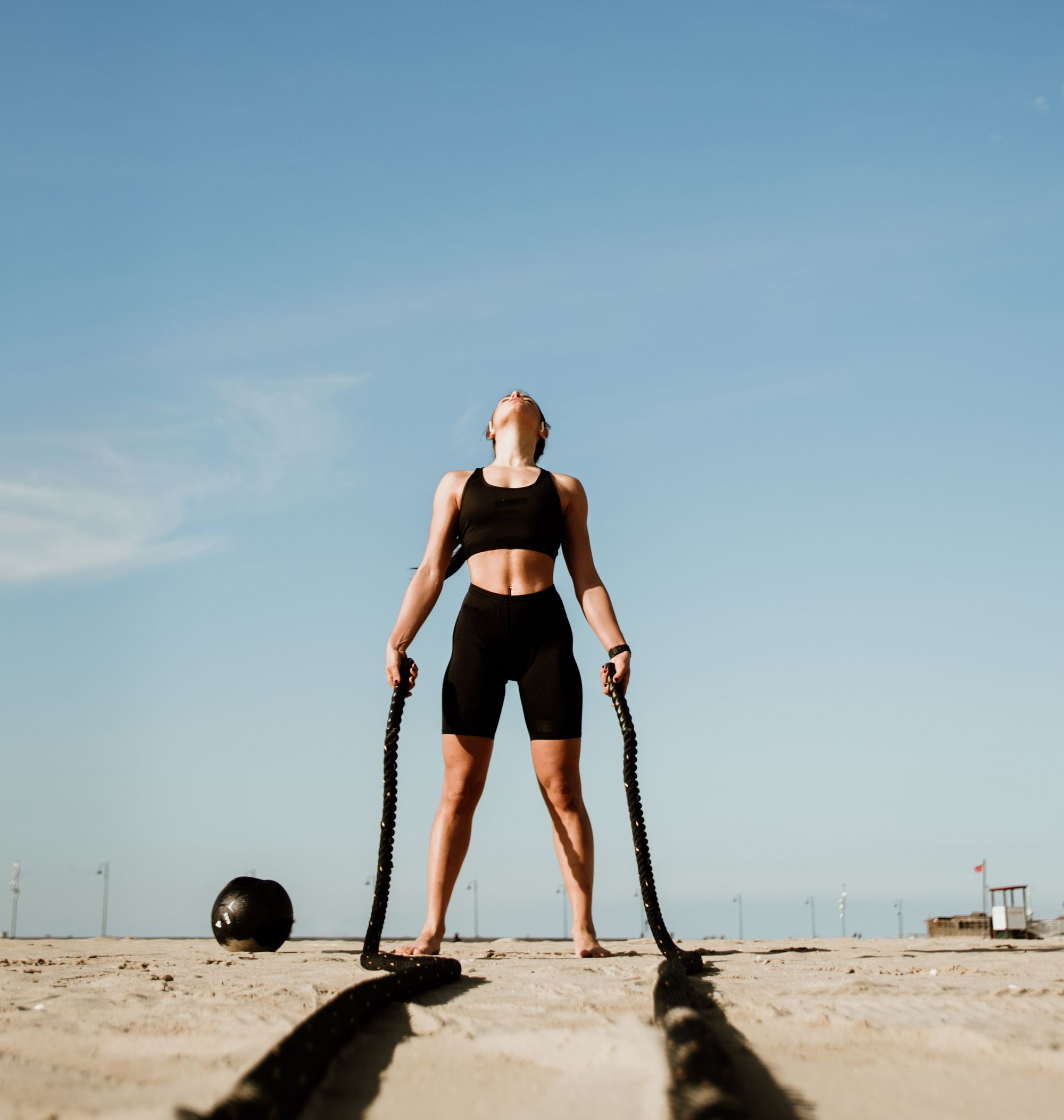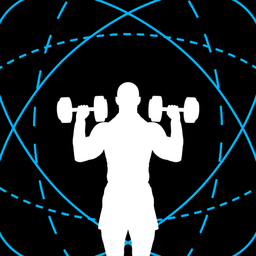Gym for Beginners: The Ultimate Guide for What Truly Matters
Training. Nutrition. There are so many things you should optimize when you're a beginner at the gym. Good news: not all matter for progress.

It’s January, which means you’re making good on that go-to-the-gym New Year’s resolution of yours … right? *lifts eyebrow*
Whether you’re 10 sessions deep (🎉) or planning to hit the gym soon-ish, we figured you'd appreciate a handy compilation of everything that’ll truly move the weight loss and/or gains needle — so you aren’t left spinning your wheels.
#1: Adequate training volume
For those of you who’d like to lose weight, you may be wondering:
"Why should I care about training volume? Isn't that more applicable for those who want to maximize muscle growth?”
See, here’s the thing. When you’re in a calorie deficit, your body doesn’t care how it sheds the weight, just that it does, meaning you'll lose fat and muscle mass. Now, the former: that's your goal. I.e., it's celebration-worthy. But the latter?
Research shows that the more muscle mass you lose during a diet, the:
- More hunger you tend to experience later, which
- Jacks up the likelihood of you regaining the weight you’ve lost post-diet 🫣
And that’s why you should care about adequate training volume even though you’re gunning for smaller numbers on the scale; because it tells your body to hang on to its muscle mass (how else would it handle an 80-kg barbell squat?) and prioritize fat loss instead.
OK. So, what counts as “adequate” training volume?
It depends on your lifting experience (and, as explained earlier, not on your body composition goals).
To get exact numbers on the sets + reps you should do as a beginner at the gym:

#2: Proper nutrition
As surprising as this may sound, the primary difference between a diet geared for:
- Weight loss vs
- Muscle growth
… is energy balance. Or how many calories you eat above/below your maintenance calories.
With a weight loss goal, to escape relatively unscathed from the adverse metabolic adaptations to a calorie deficit (we’re talking muscle mass loss, subconscious reductions in daily step count, increased hunger, and more), research suggests you’d do best with a moderate, 15% to 25% deficit.
On the other hand, if you’d like to get a bigger back, shoulders, glutes — well, just about everything, then you’ll need a slight calorie surplus. Slight: i.e., nothing too crazy, typically around 10% to 15% above your maintenance calories — otherwise, you risk putting on too much fat.
Besides the number of calories, the basics of "proper nutrition" for a weight-loss or gains-geared diet are, TBH, unexciting. It involves:
- Eating enough protein (~1.6 grams per kilogram of body weight; feel free to plug any dietary gaps with protein shakes)
- Suitably distributing remaining calories to energy-giving carbs and health-supporting fats (55-60% carbs, 40-45% fat)
- Prioritizing whole, minimally processed, nutrient-dense foods
#3: Have realistic expectations
As a beginner to the gym, how long do you think it’ll take for you to achieve your body composition goals?
Take that figure and double it. Maybe even triple it for good measure.
To quote Matthew Kelly in “The Long View”:
“Most people overestimate what they can do in a day, and underestimate what they can do in a month. We overestimate what we can do in a year, and underestimate what we can accomplish in a decade.”
Don't expect to drop 3 sizes or look like your fav ripped fitness influencer in 3 months — then get disappointed and throw in the towel when the time's up, and you're still 10,000 miles away from your goals.
If you’d like to calculate the exact number of weeks you need to bag your dream physique (for realistic expectations):

#4: Don’t strive for perfection; just start
You know what you should do — in terms of training volume and nutrition — to realize your fitness goal.
Now, please know you don't have to nail everything down right from the start.
That's waaaaay too much pressure.
Instead, start small and slow. Maybe start going to the gym 1x a week instead of not going. Meal prep 4 meals weekly instead of eating out daily.
When it comes to progress, remember this: consistency > perfection.
Think that sounds like a lie we tell ourselves to feel good?
This 2017 study published in the Journal of Diabetes Research is here to change your mind. So, the researchers got the participants to track their food intake over 12 months. At the end of the study, they divided the participants into 3 groups:
… and found that only consistent trackers experienced significant weight loss of 4.5 kg (9.9 lbs.).
Evidence that consistency is truly what’ll move the progress needle.
On that note, you can’t be consistent without first starting. And a crucial piece of advice here is: don’t overthink your training or nutrition plan.
Most beginners going to the gym needlessly fiddle with the specifics (e.g., Should I do the leg press or barbell squat? Should I drink a protein shake before bed?) so much that they’re stuck in a state of inaction. Don’t miss the proverbial forest over the trees.
Get started, or keep going, with GymStreak
Want tailor-made, plug-and-play training + nutrition plans that’ll help you hit the ground running like … now?
Then check out GymStreak. This smart, AI-powered personal trainer app is everything you need to get started and, most importantly, keep going — so you achieve all your fitness aspirations.
A sneak peek here:
Workout Programming + Nutrition Tracking, Off Your Hands
*sigh of relief* We'll guide you through it all — step-by-step. Just download the app, and you'll be making progress toward your dream body like never before.
References
A Quote by Matthew Kelly. https://www.goodreads.com/quotes/7589545-most-people-overestimate-what-they-can-do-in-a-day. Accessed 12 Jan. 2024.
Helms, Eric R., et al. “Evidence-Based Recommendations for Natural Bodybuilding Contest Preparation: Nutrition and Supplementation.” Journal of the International Society of Sports Nutrition, vol. 11, no. 1, May 2014, p. 20. BioMed Central, https://doi.org/10.1186/1550-2783-11-20.
Ingels, John Spencer, et al. “The Effect of Adherence to Dietary Tracking on Weight Loss: Using HLM to Model Weight Loss over Time.” Journal of Diabetes Research, vol. 2017, 2017, p. 6951495. PubMed Central, https://doi.org/10.1155/2017/6951495.
Murphy, Chaise, and Karsten Koehler. “Energy Deficiency Impairs Resistance Training Gains in Lean Mass but Not Strength: A Meta-Analysis and Meta-Regression.” Scandinavian Journal of Medicine & Science in Sports, vol. 32, no. 1, Jan. 2022, pp. 125–37. PubMed, https://doi.org/10.1111/sms.14075.
Turicchi, Jake, et al. “Associations between the Proportion of Fat-Free Mass Loss during Weight Loss, Changes in Appetite, and Subsequent Weight Change: Results from a Randomized 2-Stage Dietary Intervention Trial.” The American Journal of Clinical Nutrition, vol. 111, no. 3, Mar. 2020, pp. 536–44. PubMed, https://doi.org/10.1093/ajcn/nqz331.


